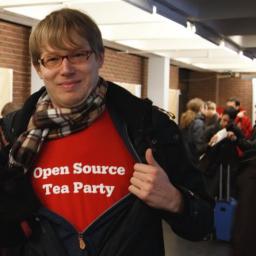
Some people have had enough, and they've organized a boycott at "
http://boycottsystemd.org" to organize efforts. From the top: "
Disclaimer: We are not sysvinit purists by any means. We do recognize the need for a new init system in the 21st century, but systemd is not it." OK, that's enough to keep me reading. They outline twelve well-thought-out reasons systemd is dangerous, and a set of ways you can get involved, including refusing to use systemd distros, moving to slackware, crux, gentoo, BSD, and more. Here's just one of them:
systemd clusters itself into PID 1. Due to it controlling lots of different components, this means that there are tons of scenarios in which it can crash and bring down the whole system. But in addition, this means that plenty of non-kernel system upgrades will now require a reboot. Enjoy your new Windows 9 Linux system! In fairness, systemd does provide a mechanism to reserialize and reexecute systemctl in real time. If this fails, of course, the system goes down. There are several ways that this can occur9. This happens to be another example of SPOF.
Interesting times. When's the last time you heard someone advocate moving immediately to Slackware or Gentoo?
 Some people have had enough, and they've organized a boycott at "http://boycottsystemd.org" to organize efforts. From the top: "Disclaimer: We are not sysvinit purists by any means. We do recognize the need for a new init system in the 21st century, but systemd is not it." OK, that's enough to keep me reading. They outline twelve well-thought-out reasons systemd is dangerous, and a set of ways you can get involved, including refusing to use systemd distros, moving to slackware, crux, gentoo, BSD, and more. Here's just one of them:
Some people have had enough, and they've organized a boycott at "http://boycottsystemd.org" to organize efforts. From the top: "Disclaimer: We are not sysvinit purists by any means. We do recognize the need for a new init system in the 21st century, but systemd is not it." OK, that's enough to keep me reading. They outline twelve well-thought-out reasons systemd is dangerous, and a set of ways you can get involved, including refusing to use systemd distros, moving to slackware, crux, gentoo, BSD, and more. Here's just one of them: